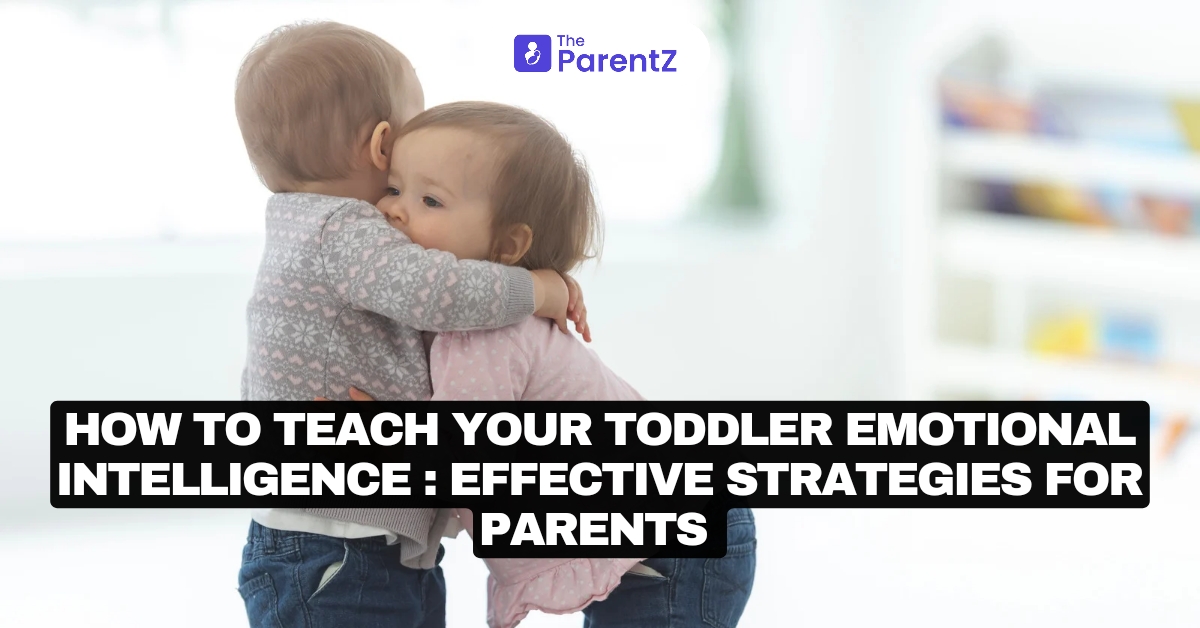Teaching your toddler emotional intelligence is one of the most valuable gifts you can give. Emotional intelligence (EI) is the ability to recognize, understand, and manage our own emotions and the emotions of others. High EI can lead to better social interactions, improved relationships, and greater success in life. This article explores practical strategies for teaching toddlers emotional intelligence, ensuring they grow into empathetic, resilient, and emotionally aware individuals.
Why is Emotional Intelligence Important for Toddlers?
Enhances Social Skills
Toddlers with high emotional intelligence are better equipped to form healthy relationships. They can communicate their feelings effectively, understand others’ emotions, and resolve conflicts amicably.
Promotes Academic Success
Emotional intelligence is linked to better academic performance. Children who can manage their emotions are more focused, motivated, and less likely to be distracted by negative feelings.
Builds Resilience
Emotional intelligence helps children cope with challenges and setbacks. By understanding and managing their emotions, toddlers develop resilience, allowing them to bounce back from difficulties.
Key Strategies for Teaching Toddlers Emotional Intelligence
1. Model Emotional Intelligence
Children learn by observing their parents. Displaying emotional intelligence in your daily interactions is crucial. Show empathy, manage your emotions effectively, and communicate openly about your feelings. Your toddler will mimic these behaviors, learning to navigate their own emotions.
2. Label Emotions
Help your toddler identify and label their emotions. When they are upset, say things like, “I see you’re feeling angry,” or “It looks like you’re sad.” This helps them recognize their emotions and understand that it’s okay to feel a certain way.
3. Read Emotionally Rich Books
Reading books that depict a range of emotions can be an excellent way to teach toddlers about feelings. Discuss the characters’ emotions and ask your child how they would feel in similar situations. This practice enhances their emotional vocabulary and empathy.
4. Practice Empathy
Encourage your toddler to consider other people’s feelings. When someone is sad or upset, ask your child how they think that person feels and what they could do to help. This practice fosters empathy and helps them understand different perspectives.
5. Teach Problem-Solving Skills
When your toddler faces a conflict, guide them through the process of resolving it. Encourage them to express their feelings, listen to the other person, and come up with a solution together. This teaches them how to handle disputes constructively.
6. Create a Safe Environment for Expression
Ensure your home is a safe space for your child to express their emotions without fear of judgment. Validate their feelings and provide comfort. This helps them feel secure and more willing to share their emotions.
7. Use Games and Activities
Engage your toddler in games and activities that promote emotional intelligence. Role-playing, puppet shows, and emotion cards are fun ways to teach emotional recognition and expression. These activities make learning about emotions enjoyable and engaging.
Common Challenges and Solutions
Challenge: Toddler Tantrums
Solution: Stay calm and acknowledge their feelings. Offer comfort and help them label their emotions. Once they are calm, discuss what triggered the tantrum and how they can handle similar situations in the future.
Challenge: Difficulty Sharing
Solution: Teach the importance of sharing through role-playing and positive reinforcement. Praise your toddler when they share and explain how it makes others feel happy.
Challenge: Expressing Negative Emotions
Solution: Encourage your toddler to talk about their negative emotions instead of acting out. Provide them with tools like deep breathing or counting to ten to manage their feelings.
Practical Tips for Parents
Be Patient
Teaching emotional intelligence is a gradual process. Be patient and consistent in your efforts. Celebrate small victories and progress.
Stay Involved
Stay actively involved in your toddler’s emotional development. Regularly check in on their feelings and provide support and guidance as needed.
Foster Open Communication
Encourage open communication about emotions within your family. Share your own feelings and experiences, creating a culture of emotional openness.
Conclusion
Teaching your toddler emotional intelligence sets the foundation for their future emotional and social well-being. By modeling emotional intelligence, labeling emotions, practicing empathy, and creating a safe environment, you can help your child develop the skills they need to navigate their emotions and build strong relationships. With patience and consistency, you can raise an emotionally intelligent and resilient child.








Be the first one to comment on this story.